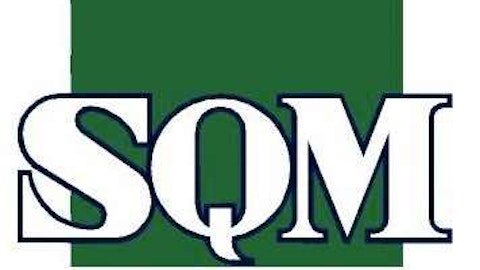
The biggest bull market in the world
As impressive as the gains in U.S. stock markets have been, Japan has put the Dow’s recent advances to shame with its soaring stock market. Prior to last night’s more than 1,100-point plunge, the Nikkei had risen more than 50% in 2013, and more than 80% since last October. Although Japan’s stock market is nowhere near its all-time records from the late 1980s, the levels it hit were its highest since late 2007.
The man behind the move is Japanese Prime Minister Shinzo Abe, who has copied a page from the Ben Bernanke playbook by implementing aggressive quantitative easing policies to try to restart a national economy that has been largely dormant for two decades. With Japan’s central bank having implemented huge bond purchases similar to what the Fed is doing in the U.S., the value of the Japanese yen has fallen dramatically. Recently, it has taken more than 100 yen to buy a U.S. dollar compared to less than 80 yen as recently as last summer.
The success of Abe’s policy has helped send stocks rising, as Japanese GDP rose a faster-than-expected 3.5% in the first quarter. Exporters have benefited the most, with auto giant Toyota Motor Corporation (ADR) (NYSE:TM) and consumer-products maker Sony Corporation (ADR) (NYSE:SNE) both posting impressive gains. In other words, everything seemed to be working according to plan.
What happened last night?
Yet, last night, Japanese investors lost their nerve. News that a gauge of manufacturing activity in China had fallen to levels indicating a potential pullback made the NIKKEI 225 (Nikkei Indices:NI225) reverse gains from earlier in the session. But potentially more troubling was the climb in interest rates in Japan, where 10-year bonds now yield above 1% for the first time in more than a year. That hurt companies in the financial and real-estate industries and, given how higher yields fly in the face of the Japanese government’s bond-buying program, it raises questions about the efficacy of quantitative easing worldwide once bond investors lose confidence.
After such a huge run higher, yesterday’s decline could very well simply represent a reasonable, if violent, pullback that won’t represent a reversal in the NIKKEI 225 (Nikkei Indices:NI225)’s longer-run bull market. Yet, it does serve as a reminder that overheating stock markets can’t move straight up forever, and investors around the world need to prepare for potential volatility in the future.
The article Is Japan’s Bull Market Over? originally appeared on Fool.com and is written by Dan Caplinger.
Fool contributor Dan Caplinger has no position in any stocks mentioned. You can follow him on Twitter @DanCaplinger. The Motley Fool has no position in any of the stocks mentioned.
Copyright © 1995 – 2013 The Motley Fool, LLC. All rights reserved. The Motley Fool has a disclosure policy.
